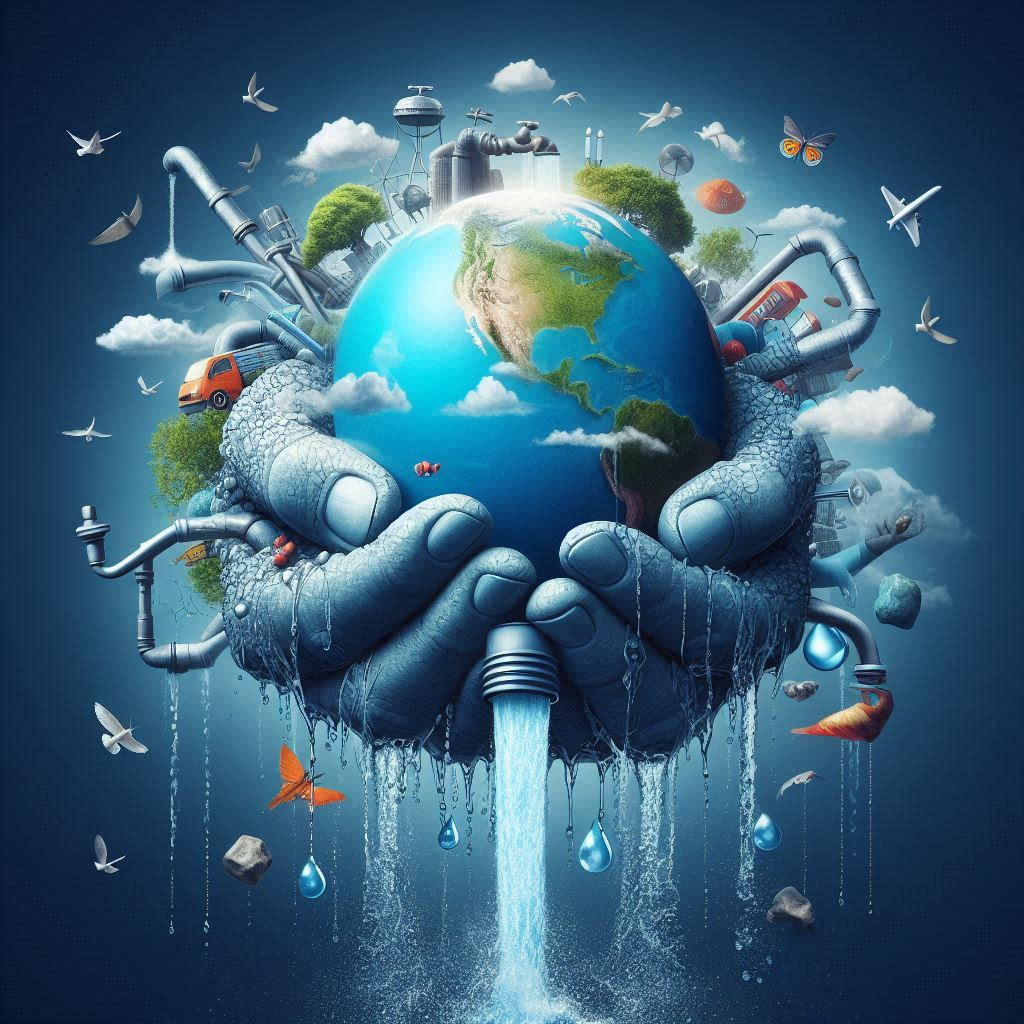**Save Water: A Critical Call to Action**
Water is essential for life, covering about 71% of our planet, yet only 2.5% of it is freshwater, the kind we rely on for drinking, agriculture, and sanitation. With rapid population growth, climate change, and unsustainable water use, water scarcity is becoming a global crisis. Saving water is not just an environmental concern; it’s a responsibility that affects economies, health, and the very survival of ecosystems and humanity.
### The Importance of Water Conservation
Water conservation is the careful and efficient management of water resources to prevent wastage and ensure that we have enough for future generations. While water may seem abundant in many parts of the world, millions of people still suffer from water shortages. According to the United Nations, around 2.2 billion people lack access to safely managed drinking water, and by 2025, half of the world’s population could be living in water-stressed areas.
### Why We Need to Save Water
1. **Environmental Preservation**: Water is vital for ecosystems that support wildlife, plants, and humans. Deforestation, pollution, and excessive water use harm rivers, lakes, and wetlands, threatening biodiversity. By saving water, we help maintain natural habitats and ensure ecological balance.
2. **Climate Change Mitigation**: Climate change is exacerbating water scarcity by altering rainfall patterns, causing droughts in some areas and floods in others. Conserving water helps reduce the energy needed to treat and transport it, thereby lowering greenhouse gas emissions.
3. **Economic Benefits**: Industries, agriculture, and households all rely on water. Efficient water use can lead to cost savings for businesses and reduce the burden on public infrastructure. In regions where water is scarce, saving water can help alleviate the financial strain caused by its high cost.
4. **Health and Sanitation**: Water scarcity leads to inadequate sanitation, which can result in the spread of diseases. Saving water ensures that more people have access to clean, safe water for drinking, cooking, and hygiene, reducing the risk of waterborne illnesses.
### Simple Ways to Save Water
#### In Households:
- **Fix Leaks**: A dripping faucet can waste gallons of water over time. Fixing leaks in pipes, toilets, and appliances can save a significant amount of water.
- **Use Water-Efficient Appliances**: Installing low-flow toilets, showerheads, and faucets can drastically cut water use. Modern dishwashers and washing machines are also designed to be water-efficient.
- **Turn Off Taps**: Simple habits, like turning off the tap while brushing teeth or shaving, can save gallons of water each day.
- **Shorter Showers**: Reducing shower time is one of the easiest ways to save water. Even shaving off a minute or two can save gallons.
#### In Gardens:
- **Water Plants Wisely**: Watering early in the morning or late in the evening helps reduce evaporation. Using drip irrigation systems can also target plant roots more efficiently, reducing water wastage.
- **Choose Native Plants**: Planting native or drought-resistant plants in your garden reduces the need for frequent watering, as these plants are adapted to local climates.
- **Rainwater Harvesting**: Installing rain barrels to collect rainwater for watering gardens or flushing toilets is a sustainable way to save water.
#### In Agriculture:
- **Efficient Irrigation**: Switching from traditional irrigation methods to drip or sprinkler systems can cut water usage significantly while maintaining crop yields.
- **Soil Management**: Improving soil quality by adding organic matter helps retain moisture, reducing the need for frequent watering.
- **Crop Selection**: Growing crops that are suited to the local climate can reduce the amount of water needed for irrigation.
### The Role of Governments and Organizations
Governments, NGOs, and businesses play a crucial role in promoting water conservation. Policies that encourage sustainable water management, infrastructure investments in water-saving technologies, and educational campaigns can all contribute to saving water.
Governments can also enforce regulations to limit excessive water use in agriculture, industry, and urban areas. Water pricing mechanisms can be used to incentivize people and industries to use water more efficiently.
### Conclusion
Water is a finite resource, and its conservation is crucial for the health of our planet and the well-being of future generations. From simple changes in daily habits to large-scale initiatives by governments and industries, saving water is a shared responsibility. By acting now, we can ensure that clean, safe water is available to everyone, today and in the future.

